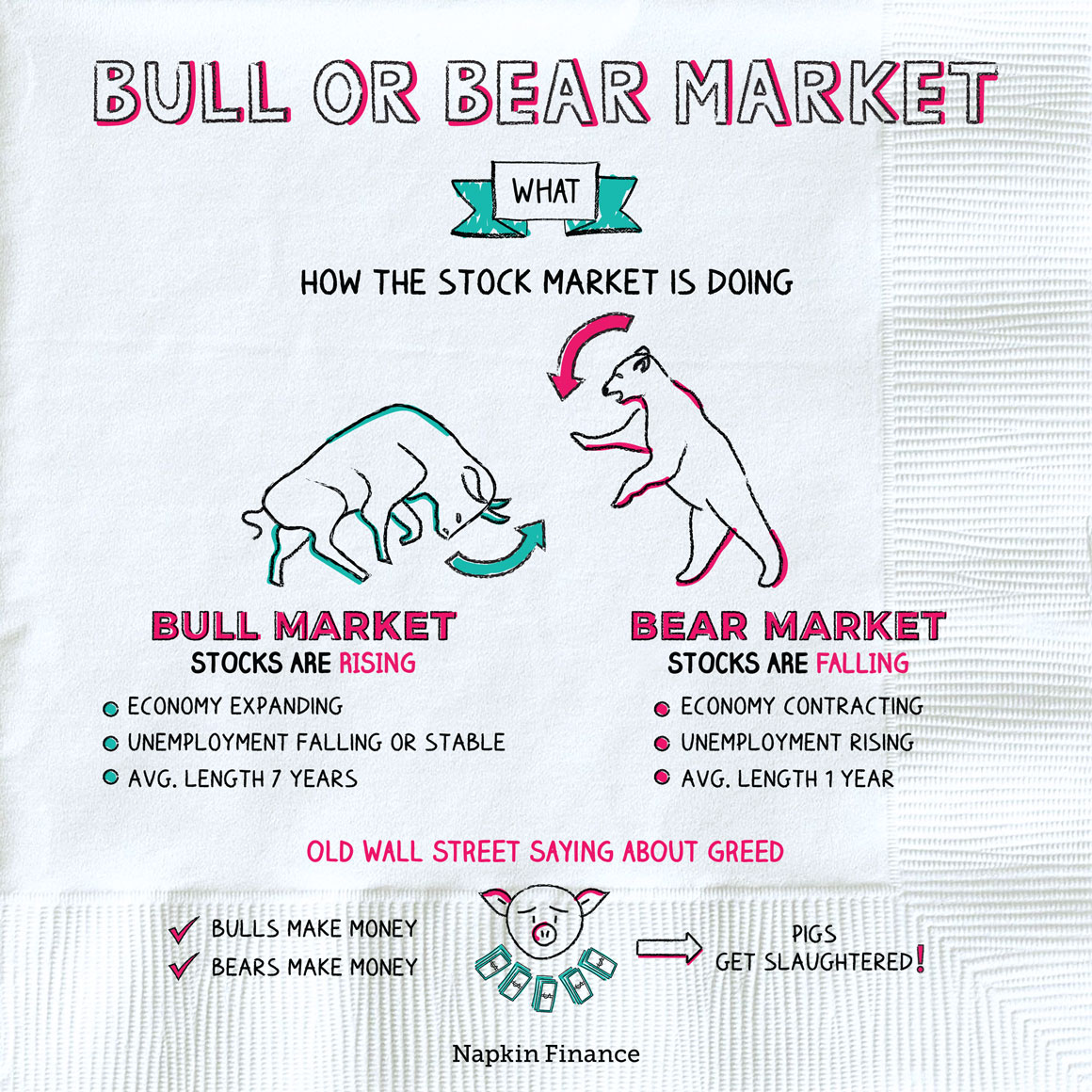Lesson 6: The Economy and the Stock Market
The economy and the stock market are not the same thing, but they are very closely linked.
When the economy is strong, companies are growing and making money. That means people are more likely to invest and buy stocks because they think profits will keep rising and companies will be able to pay bigger dividends. All of those forces typically drive stock prices up.
When the economy takes a turn for the worse, people tend to invest less or may even sell their stocks because they expect companies to make less money and pay smaller dividends—or none at all.
The stock market tends to reflect the state of the economy. At the same time, people look to the stock market’s performance for clues about how the economy is doing.
Fun fact:
Some countries’ stock markets tend to rise when its national soccer team wins a match and fall when it loses.
Bulls vs. bears
When experts talk about stock market performance, you may hear them use one of two terms:
- Bull market: When stock prices rise for an extended period of time
- Bear market: When stock prices fall (usually by 20% or more from recent highs) and continue to drop
 In a bull market, investors are buying up stocks, and share prices are rising. People may take this as a sign that the economy is doing well, so they spend more money.
In a bull market, investors are buying up stocks, and share prices are rising. People may take this as a sign that the economy is doing well, so they spend more money.
This increased spending means companies are earning more money, which they use to make and sell more products, expand their business, and hire new employees. All of this activity pumps even more money into the economy, helping it to thrive.
In a bear market, the reverse happens. Stock prices fall, people spend less money on goods and services, and this reduced spending hurts corporate profits (which makes stock prices fall even more).
Investment choices
The state of the economy may also cause people to rethink the types of investments they make.
In a weak economy, investors are more likely to buy shares of companies in healthcare, utilities, and consumer staples sectors (think food, clothing, and toilet paper). That’s because people tend to continue to buy these products and services even in a bad economy.
By contrast, if the economy is strong, people are more likely to make riskier investments—such as in startup companies—in hopes of scoring higher returns.
Uneven impact
Sometimes economic ups and downs have a bigger impact on certain industries or companies. The COVID-19 financial downturn crushed share prices of companies in the cruise industry, with some major cruise lines seeing their share prices drop by more than 75%. Because people weren’t traveling—and some cruise passengers were getting sick—investors expected that cruise lines would be much less profitable.
By contrast, stock prices for companies like Netflix, Amazon, and Clorox increased. Why? Because more people were watching TV and movies at home, getting groceries and other goods delivered, and disinfecting their homes, investors expected those companies to enjoy bigger corporate profits.
The expectations game
How investors expect the economy will perform in the future—and how changes in the economy will affect company profits—is an important piece of the economy/stock market relationship. Investors keep an eye on many different measures of how the economy is doing.
Take the unemployment rate and those monthly jobs reports you hear about on the news. If these measures show that more Americans are getting hired and keeping their jobs, investors might expect companies to have higher sales and, in turn, higher profits and dividends, leading investors to buy more stock. Investors are always trying to anticipate what’s going to come next for the economy so that they can buy stocks before they rise and sell stocks before they fall.


